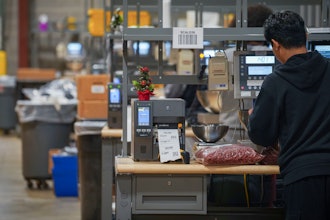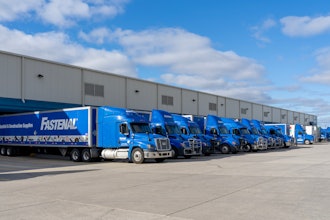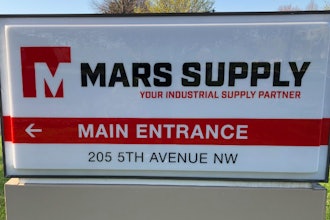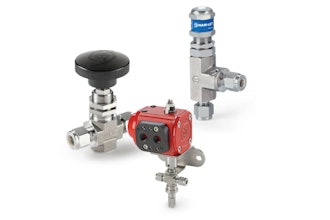
Because so few people have put a value on a supervisor actually supervising, many managers unfortunately fill up the supervisor’s day with paperwork, exacerbating the problem. If I asked you how much time your maintenance supervisor spends on the shop floor, what would you say? Being in a supervisory role doesn't make someone an effective supervisor. They have to develop their skills as a supervisor the same way they learn any craft.
The job of maintenance supervisors is to get the maintenance work completed on time, on budget and safely. They can be popular. They can be great communicators. They can be inspired trainers. They can be great repair people. But these things alone do not make successful maintenance supervisors. They are not successful maintenance supervisors unless they can keep the machines running, the fleet rolling and the occupants warm in the winter.
When does an active supervisor look like when they are no longer bogged down in an office doing paperwork? Active supervision occurs when a supervisor spends substantial time on the shop floor helping workers solve problems. As strange as it might sound, on the psychological level a supervisor might have to be both mother (nurturing and supportive) and father (strict and tough) to members of the crew.
Active supervision encompasses several roles:
Ongoing performance monitor: The supervisor knows how long each job should take and checks it periodically throughout the day. A four-hour job issued in the morning should be done by the lunch break. When the jobs fall behind, the experienced supervisor thinks about how best to intervene. In some cases it might be logistical help, helping with equipment, or providing guidance about how to proceed. In some cases what’s required is a kick in the pants! In other cases the supervisor will hang back if wrestling with the job is important for training.
Friend: Everyone needs a friend. We like to think that the supervisor has our back. Sometimes the best thing a supervisor can do is just listen like a friend. It can make all the difference.
Coach: Supervisors are not on the field. They are on the sidelines. Their job is to get the crew to win the game without picking up a tool themselves.
Paperwork compliance officer: The accuracy of all analysis is derived from the work order. If the work order is complete and accurate then decision-making and root cause analysis become dramatically easier. Supervisors audit paperwork and return it when it is deficient. They should always look at work orders on the floor and ensure entries are being made at the same time as the activity occurs, not at a later time.
Obsessive-compulsive PM monitor: A supervisor reinforces the rule: “Do the PM as it is written.” A related issue is PM compliance. If a worker does not have the task list in-hand when they are doing the PM, how do we know what was actually done? The supervisor ensures workers carry the task list when completing PMs.
Teacher, Mentor: The supervisor should either be continuously training or directing the training of crew members. Everyone has areas that they are better at and areas that they aren’t so familiar with. The easiest crew to schedule is the one where everyone can do everything. The effective supervisor should be reviewing the schedule every day and looking for training opportunities. These can be formal training sessions or letting the trainee ‘help’ an experienced hand.
Prison guard: People break rules. Some people text while working or break other rules, increasing danger within the workplace. The supervisor needs to know what the rules are and enforce them.
Priest, Therapist: People have problems which often follow them to work. The supervisor’s job is to be sure the worker is focused on his or her job and that their problems are on the back burner during the work day. Sometimes it takes a therapist or priest to get people in the working frame of mind.
Quality control officer: The supervisor is responsible for the overall quality of all work performed in his or her shop. Where there are quality issues the supervisor determines the cause of the problem which could be rooted in several areas: lack of knowledge or skill, lack of aptitude, lack of adequate physical strength or dexterity, a bad attitude, lack of the right tool, lack of the right part, some inadequacy in working conditions, inadequate time, or preoccupation brought about by a problem outside of work. The supervisor should help the worker solve the quality problem. If the problem is with the company or system (such as bad working conditions or lack of tools or parts) the supervisor should tackle those too. If the worker has a problem with external issues the supervisor should mentor them or attempt to find them help within the organization.
Safety officer: The supervisor should intervene any time an employee or visitor performs an unsafe act or is in the shop without the proper personal protective equipment. The supervisor is a champion for safety and makes sure the shop is safe.
Tidiness cheerleader (5S): The shop must be kept clean for safety, efficiency and morale. All clean-up for individual jobs should be part of, and charged to, the individual job., The supervisor should arrange for periodic clean-up projects to keep the whole area and the yard tidy.
No one said a supervisor’s job is easy. If your goal is to help your maintenance supervisor become more effective, encourage him or her to practice these 11 different roles and they’ll be on their way to significantly improving the productivity of their team.
About the author
Joel Levitt is the Director of International Projects with Life Cycle Engineering (LCE). He has over 30 years’ experience in the maintenance field including process control design, source equipment inspection, electrical expertise, field service technician, maritime operations, and property management. A recognized expert at training maintenance professionals, Joel has trained more than 17,000 maintenance leaders from 3,000 organizations around the world. You can reach Joel at [email protected].























